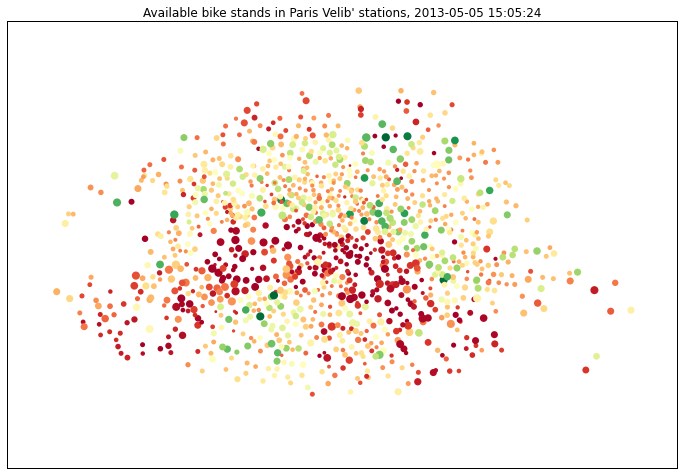Vélib' Open Data
2013-05-05
Vélib', the public bicycle sharing system in Paris. I've written a short IPython notebook to play with some of the data, and to illustrate how easy it is to use Python for browsing and analyzing public data sets. Here is an image representing the stations in Paris, with the marker size proportional to the number of bike stands in each station, and the color indicating how many available stands there are. The Seine is easily recognizable, and the fact that most stations near the river are full might be linked to the fact that this data has been obtained on a sunny Sunday of May...
